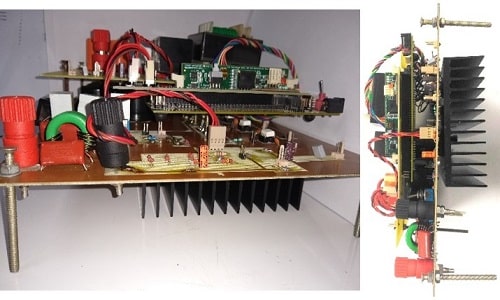The new EV charging technology not just reduces the cost of electric vehicles but also provides a problem-free driving experience

The Indian government’s relaxation of various policies regarding the development of electric vehicle (EV) charging stations is a welcome move for the widespread adoption of EVs.
Taking advantage of it, a team of researchers at IIT (BHU) Varanasi along with experts from IIT Guwahati and IIT Bhubaneswar have developed a new, low-cost technology for the on-board charging of vehicles that can further bring down costs of two and four-wheeler electric vehicles.
Dr Rajeev Kumar Singh, Associate Professor and Chief Project Investigator of the Department of Electrical Engineering said, “The rising prices of petrol and diesel in the country is worrisome for the common man. Amidst the rising cost of petroleum products and rising pollution levels, EVs are the best alternative to conventional IC engines but the lack of high power off-board charging infrastructure forces automakers to incorporate on-board chargers into the vehicle itself. (Currently) The vehicle owner has to charge the vehicles through the outlet, which leads electric vehicles to become very expensive.”
With a cost reduction of nearly 50% compared to the existing on-board charger technology, the new EV charging technology not just reduces the cost of electric vehicles but also provides a problem-free driving experience on Indian roads.
The technology will also enhance the charging infrastructure of vehicles in the country and contribute towards sustainable development of EVs by improving community health through the elimination of tailpipe emissions and reduced reliance on fossil fuels.
Taking note of the benefits of the indigenous technology, a leading EV manufacturer has expressed interest in commercialising and developing a fully-fledged commercial product.
Prof. Pramod Kumar Jain, Director of IIT (BHU) Varanasi said, “The developed technology will help in the production of low-cost electric vehicles which will be beneficial for the common man. The techno-commercial, social, economic and environmental impact of technology will also be positive. The technology will improve charging infrastructure and support the government’s mission to bring electric vehicles on Indian roads in a big way.”
He added that in future, the institute plans to set up an interdisciplinary centre on EV technologies for researching, designing, fabricating and testing battery management systems, providing solutions to R&D problems and developing human resources in the area.
The research has been financially supported by the Ministry of Electronics and Information Technology (MeitY), the Government of India, which will also contribute to the National Mission on Transformative Mobility and Battery Storage, an e-mobility mission of the government.










